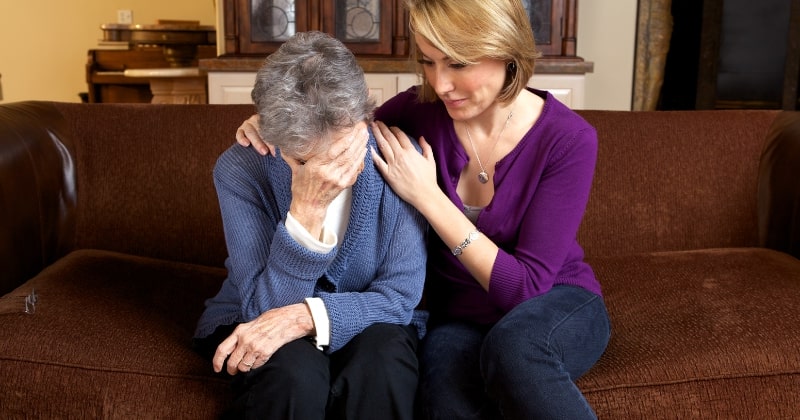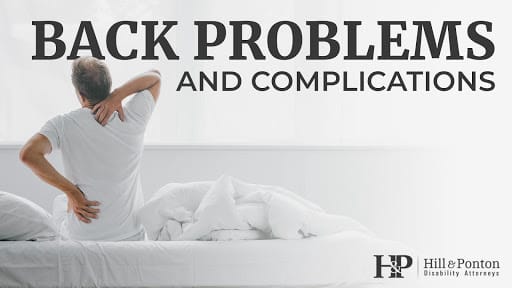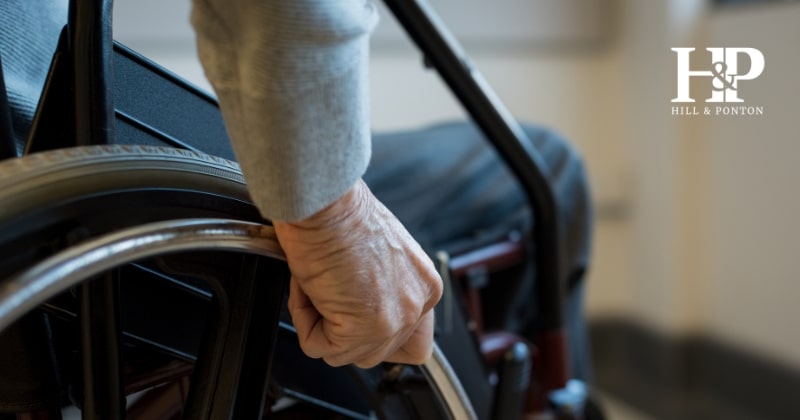When a veteran passes away, their surviving spouse, children, and in some cases, parents may qualify for various benefits from the U.S. Department of Veterans Affairs and the Department of Defense. These survivor benefits provide monthly income, health care coverage, education assistance, and more. Find out for which benefits you qualify!
Do Surviving Spouses Get VA Disability Benefits?
Surviving spouses do not receive the veteran’s VA disability compensation payments after the veteran’s death. VA disability benefits stop when a veteran dies. However, surviving spouses may qualify for VA survivor benefits and, if the veteran had a pending claim, for accrued benefits.
VA Attorney Shannon Brewer explains survivor benefits in this video:
If you were denied benefits, our legal team may be able to help you. Get a free evaluation of your case today.
Free case evaluationDependency and Indemnity Compensation (DIC)
Dependency and Indemnity Compensation is not the same as disability compensation, but it is the primary monthly benefit that replaces it for surviving spouses if the veteran’s death is service-connected or meets certain criteria. This tax-free monthly benefit is paid to surviving family members of veterans who:
- Died as a result of a service-connected condition, OR
- Were rated as totally disabled (100%) by the VA for a specific period of time prior to death, even if their death was not directly caused by the disability.
Eligibility Criteria for Surviving Spouses
A surviving spouse is eligible for DIC if one or more of the following apply:
1. The marriage to the veteran:
- Lasted at least one year prior to the veteran’s death, OR
- Produced a child (biological or adopted) born before or during the marriage, OR
- Took place within 15 years of the veteran’s discharge from the period of service that caused the fatal condition, OR
- Occurred before January 1, 1957.
2. The spouse cohabited continuously with the veteran until death, except in cases of:
- Mutual consent to live apart,
- Separation caused by the veteran’s misconduct, or
- Situations involving domestic violence or endangerment to the spouse’s safety.
Find out more about DIC benefits for widows and widowers→
Eligibility for Surviving Children
Surviving children may qualify if they are:
- Unmarried, and
- Under age 18, or
- Between 18 and 23 and enrolled in an approved educational program, or
- Permanently incapable of self-support due to a disability that began before age 18.
DIC for children is typically only paid when no surviving spouse is eligible, or under apportionment rules. Find out more about DIC for children→
Eligibility for Surviving Parents
Parents of deceased veterans may be eligible for Parents’ DIC, which is available to biological, adoptive, or foster parents who:
- Were financially dependent on the veteran, and
- Meet specific income limits, which vary based on the number of dependents and whether one or both parents are alive.
Find out more about DIC for veterans’ parents→
Survivors Pension (Death Pension)
Survivors Pension (formerly known as Death Pension) is a need-based monthly benefit paid to low-income surviving spouses and children of deceased veterans who had qualifying wartime service and died from non-service-connected causes.
Unlike DIC, the cause of death does not need to be related to military service. To qualify, the veteran must have been discharged under conditions other than dishonorable and:
- Served at least 90 days of active duty, with at least one day during a wartime period, OR
- For service after September 7, 1980, served 24 months or the full period for which they were called to active duty, including one day during a wartime period.
Eligibility for Surviving Spouses
- Married the veteran at least one year before death, OR
- Had a child born of the marriage or before the marriage, OR
- Married during or before the veteran’s military service.
The survivor’s countable income and net worth must fall below limits set annually by the VA. Some medical expenses may be deducted to reduce countable income.
Find out more about Survivors Pension→
Aid & Attendance and Housebound Allowances
Aid & Attendance (A&A)
Survivors receiving DIC or Survivors Pension may be entitled to additional compensation if they require help with their daily activities. Qualifying conditions include:
- Inability to dress, bathe, or feed oneself,
- Needing assistance with toileting,
- Physical or mental incapacity that requires supervision for safety,
- Residing in a nursing home due to disability.
Find out more about Aid & Attendance→
Housebound Allowance
Available only under Survivors Pension, this benefit provides additional compensation to survivors who are substantially confined to their residence due to permanent disabilities and do not qualify for Aid & Attendance.
Housebound allowances cannot be combined with Aid & Attendance. Find out more about housebound benefits→
Health Care and Education Benefits
CHAMPVA
CHAMPVA (Civilian Health and Medical Program of the Department of Veterans Affairs) provides cost-sharing health insurance for surviving spouses and children who are not eligible for TRICARE and whose veteran sponsor:
- Died from a service-connected condition, OR
- Was rated permanently and totally disabled at time of death.
Covered services include:
- Hospitalization and outpatient care
- Mental health and hospice care
- Medical equipment
- Prescription drugs
Children may remain eligible until age 18, or age 23 if enrolled full-time in school.
Education Benefits
Survivors’ and Dependents’ Educational Assistance (DEA / Chapter 35)
DEA provides education benefits to spouses and children of veterans who:
- Died from a service-connected disability, OR
- Were rated permanently and totally disabled at time of death, OR
- Died while such a disability rating was in effect.
Spouses generally have 10 years from the date of death to use the benefit. For active-duty deaths, the benefit period may extend to 20 years. Children are eligible between ages 18–26, though under certain conditions they may begin earlier.
See how to claim DEA benefits→
Montgomery GI Bill Death Benefit
If a veteran dies in service or within one year of separation due to a service-connected condition, a refund of unused MGIB contributions may be paid to their designated survivor. This refund is limited to the amount of MGIB contributions the service member made through payroll deduction that were not used for educational benefits.
Fry Scholarship
This scholarship offers Post-9/11 GI Bill-equivalent education benefits to spouses and children of service members who died in the line of duty on or after September 11, 2001.
- Covers up to 36 months of tuition, housing, books, and supplies
- Children relinquish DIC when using the Fry Scholarship
- Spouses may receive both DIC and the Fry Scholarship at the same time
Other Survivor Benefits
Survivor Benefit Plan (SBP)
The Survivor Benefit Plan (SBP) is a DoD-managed annuity program that allows military retirees to ensure that a portion of their retired pay (up to 55%) continues to be paid to a designated beneficiary after death. Survivors who qualify may include:
- Covers up to 36 months of tuition, housing, books, and supplies
- Children relinquish DIC when using the Fry Scholarship
- Spouses may receive both DIC and the Fry Scholarship at the same time
Previously, receiving DIC would reduce SBP payments dollar for dollar. However, due to legislative changes under the National Defense Authorization Act of 2020, this offset was fully eliminated as of January 1, 2023. Survivors may now receive full DIC and SBP payments at the same time.
Death Gratuity
The Death Gratuity Program provides a tax-free $100,000 lump-sum payment to survivors of service members who:
- Die while on active duty, OR
- Die while on active/inactive duty for training, OR
- Die within 120 days of separation, if death is related to military service.
The benefit is paid to the designated beneficiary (typically a spouse or child), or to parents or siblings if no immediate family exists.
Burial Benefits
VA burial benefits can help survivors of deceased veterans manage funeral and burial costs, as well as ensure that eligible veterans receive appropriate honors. They include:
VA Burial Allowance
The VA provides a tax-free, one-time payment to help cover burial, funeral, and transportation costs. It is paid to the surviving spouse or to the person who paid the veteran’s funeral/burial expenses, such as an adult child, executor, or funeral home (if no spouse). You must apply within two years of the veteran’s burial or cremation date.
Free Burial in a VA National Cemetery
If the veteran is eligible for burial in a VA national cemetery, the following is provided at no cost: gravesite, opening/closing, perpetual care, headstone/marker, flag, and Presidential Memorial Certificate.
Free Headstones and Markers
VA provides free headstones, grave markers or cremation niche markers for eligible veterans, even if they’re buried in a non-VA cemetery.
Correctly Applying for VA Survivor Benefits
With the exception of death gratuity, which should be paid automatically, survivors must apply for each type of benefit separately – online or at the VA office in their area. However, filing for DIC is automatically considered a claim for Survivors Pension and vice versa, so no need to submit two forms if applying for both.
Survivors should file claims within one year of the veteran’s death to be considered for retroactive benefits back to the first day of the month following death. Delayed applications may still result in benefits, but only from the date of claim.
An experienced VA-accredited representative can ensure your claim is properly filed and maximize the benefits to which you’re entitled. Contact us and we’ll point you in the right direction.
New Changes to VA Survivor Services
Starting May 2025, the Department of Veterans Affairs is making important changes to improve how it helps the families of veterans who have passed away. The following updates are meant to make VA survivor benefits easier to understand, faster to get, and more personal.
1. The Office of Survivors Assistance Returns to VA Leadership
The Office of Survivors Assistance (OSA) serves as a resource regarding all benefits and services furnished by VA to survivors and dependents of deceased veterans and members of the Armed Forces.
In 2021, OSA was moved under another VA department called the Veterans Benefits Administration (VBA). According to the VA, this move made it harder for OSA to do its job, slowed things down, and created confusion.
Since May 2025, OSA goes back to where it started: directly under the VA Secretary. The aim is for OSA to be closer to top decision-makers and more effectively shape the programs that affect survivors.
2. New “White-Glove” Survivor Outreach Team to Help with DIC Claims
The VA is launching a new service: the “White-Glove” Survivor Outreach Team, based at the Philadelphia VA Regional Office. This team will consist of specially trained survivor benefit experts who will serve as navigators and advocates for surviving family members filing Dependency and Indemnity Compensation claims.
The mission of the White-Glove Team is to “get to yes”: to ensure that eligible survivors receive the VA benefits they deserve with greater speed and accuracy.
3. Expanding Automation
The VA is also planning to use more automation to handle routine parts of survivor benefits. It’s already processing over 1,000 DIC payments or changes per day automatically, and further enhancements are expected. This is good news because it can:
- Speed up payments for simple, straightforward claims
- Cut down on errors and delays from paperwork
- Free up real people to focus on tougher or more complicated claims
But automatic processes are only as good as the information that goes into them, so veterans’ survivors and their advocates must be careful:
- If the wrong info is entered at the start, the system might make a mistake automatically (which could keep going until manually checked and fixed)
- Survivors with unusual family structures, missing documents, or eligibility complications may still require assistance and manual adjudication
- It’s important to stay informed about VA processes and further changes in regulations and procedures (the V.E.T.S. Advantage provides helpful information about VA disability claims every week)
More changes are expected as the VA is trying to fix long-standing problems with how survivor benefits are handled. These updates are meant to give survivors the help they need early on and make sure families of veterans don’t fall through the cracks.
As the new initiatives roll out, it will be critical for survivors, attorneys, and claims representatives to stay updated on VA policies, use available outreach teams, and file timely applications to ensure that survivors receive every benefit to which they are entitled.
If you are struggling to get the VA survivor benefits you’re entitled to, Hill & Ponton is here for you. Call us at 1-888-477-2363 for a free evaluation of your case.




